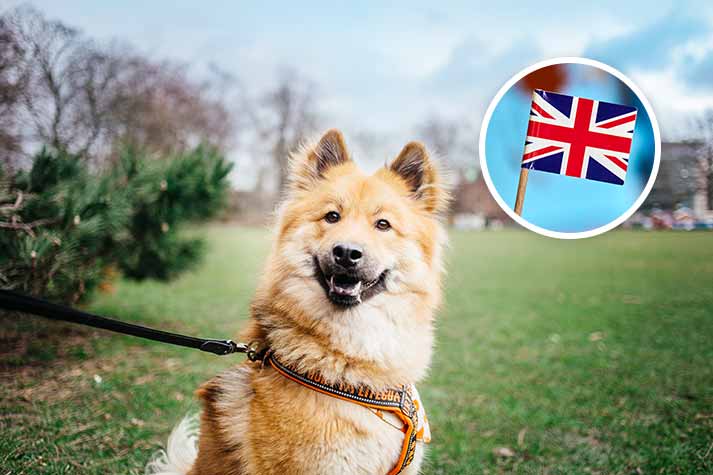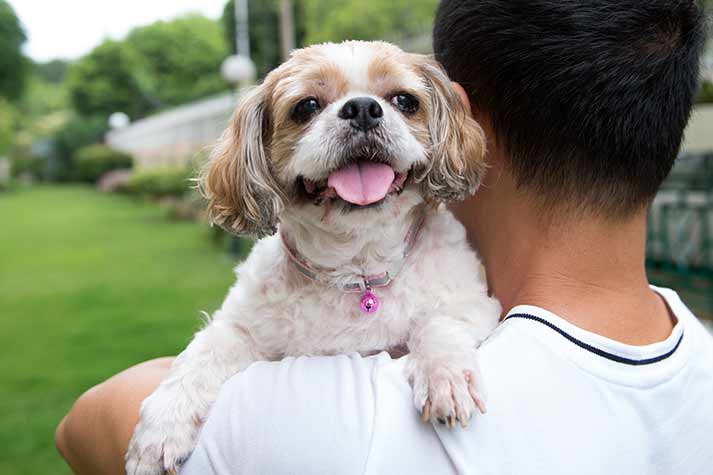
18 Jul
Bringing Pets to the UK: Understanding DEFRA Rules
Relocating with a pet involves more than just logistics; it is about ensuring a safe, smooth transition for a cherished member of your family. Whether you are moving permanently, embarking on a long trip, or arranging pet transport for someone else, understanding the UK's pet import process is essential. This guide explains everything you need to know, from required documents to quarantine rules and airport procedures.
Key Pet Import Documents for the UK
For “Part 1” Listed Countries
Countries on the EU’s Part 1 list are considered low-risk for rabies, so their pet import requirements are relatively relaxed. If you are travelling from a Part 1 country, you need one of the following for dogs, cats, or ferrets:
- A valid pet passport from a Part 1 country
- An Animal Health Certificate (AHC) issued in Great Britain within the last four months
- A pet passport issued in Great Britain before 1 January 2021
- A Great Britain Pet Health Certificate
For “Part 2” or “Not Listed” Countries
These countries have stricter entry standards. Pets arriving from them must have a Great Britain Pet Health Certificate. Additional requirements, such as rabies blood tests and longer waiting periods, also apply.
Pets travelling from India will require a few extra documents.
Export and Health Certification
You will require an international health certificate, as well as an animal health certificate for international pet travel to the U.K. this certificate is completed and signed by an authorized veterinarian, and contains an alpha-numeric code, details of vaccination, and treatment against tapeworm.
You will also need a No Objection Certificate (NOC) from the Animal Quarantine and Certification Service (AQCS) in India before you can embark on international travel with your pet.
Updated Vaccination Records
Your pet’s vaccination record should include:
- Date of birth
- Microchip number and installation date
- Microchip location on the pet’s body
- Vaccination date, vaccine manufacturer, product name (with sticker), and batch number
- Vaccine manufacture and expiry dates
- Vet’s signature
- Your contact details
Understanding UK Pet Import Regulations
Microchipping
All pets entering the UK must be microchipped. The microchip needs to be registered with your current contact information and implanted after the rabies vaccination.
Rabies Vaccination
- From Part 1 or 2 countries: vaccinate your pet at least 21 days before entry.
- From not listed countries: vaccinate at least four months before entry.
Booster Shots
Ongoing rabies boosters are critical. Missing a scheduled booster, even by a single day, means you must restart the process, including a new vaccination, fresh blood test, and another three-month waiting period.
Pet Passports and Health Certificates
EU Pet Passports
These documents facilitate travel within the EU and to the UK. They contain your pet’s health, vaccination, and identification records. Keep them accurate and up to date to avoid delays.
Non-EU Health Certificates
Pets from non-EU countries need a certified health certificate that details the microchip number, rabies vaccination record, and any received treatments. The certificate must be issued by an accredited veterinarian.
Tapeworm Treatment for Dogs
Dogs arriving from most countries (excluding Finland, Ireland, Northern Ireland, Malta, and Norway) must receive approved tapeworm treatment:
- The treatment must contain praziquantel or an equivalent
- It must be administered 24 to 120 hours before arrival
- It must be given by a licensed vet
Choosing the Right UK Airport for Pet Arrival
If your pet is flying unaccompanied from a non-EU country or is being transported commercially, entry must be through a designated Border Control Post. Approved airports include:
- Heathrow (LHR)
- Gatwick (LGW)
- Edinburgh (EDI)
Airport Wait Times for Customs Clearance
Average processing times are:
- Manchester: 4 hours
- Gatwick: 4 hours
- Heathrow: 6 to 8 hours
Planning your arrival with these wait times in mind can help prevent stress if you have connecting travel or scheduled appointments.
UK Pet Quarantine Rules
If you complete all import procedures correctly, your pet will not be quarantined. Failure to meet requirements can lead to up to four months of mandatory quarantine. The pet owner bears the cost, and quarantine must be completed at licensed facilities in the UK.
Importing Exotic Pets and Birds
The process is more complex for birds and exotic pets.
- From EU countries: typically, a health certificate is sufficient
- From non-EU countries: you need an Import Licence from APHA and must use approved entry points, such as Heathrow, Gatwick, or Edinburgh
Additional tests or quarantine may be needed depending on your pet’s species and origin. Seek personalised guidance if you are travelling with exotic pets.
Need Help with Pet Imports? Importing a pet to the UK is detailed, time-sensitive, and governed by strict regulations. Services like Carry My Pet manage documentation, regulatory compliance, and airport coordination so you can focus on reuniting with your pet.






AUTHOR’S BIO
Carry My Pet
Passionate pet enthusiasts and globetrotters, dedicated to easing furry friends' journeys worldwide. Penning tales of compassion at CarryMyPet, where every relocation is a tail-wagging adventure.